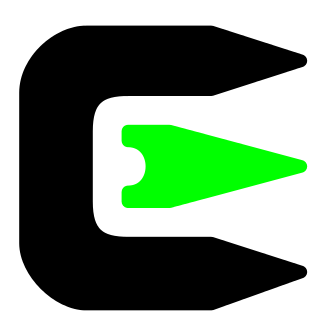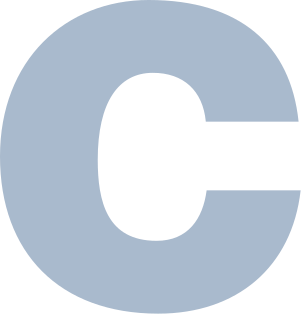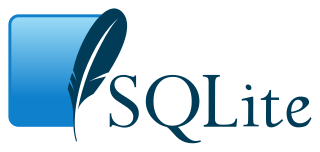Berkeley DB (BDB) is a software library intended to provide a high-performance embedded database for key/value data. Berkeley DB is written in C with API bindings for C++, C#, Java, Perl, PHP, Python, Ruby, Smalltalk, Tcl, and many other programming languages. BDB stores arbitrary key/data pairs as byte arrays, and supports multiple data items for a single key. Berkeley DB is not a relational database.

Cygwin is a POSIX-compatible environment that runs natively on Microsoft Windows. Its goal is to allow programs of Unix-like systems to be recompiled and run natively on Windows with minimal source code modifications by providing them with the same underlying POSIX API they would expect in those systems.
ScriptBasic is a scripting language variant of BASIC. The source of the interpreter is available as a C program under the LGPL license.
A database abstraction layer (DBAL) is an application programming interface which unifies the communication between a computer application and databases such as SQL Server, DB2, MySQL, PostgreSQL, Oracle or SQLite. Traditionally, all database vendors provide their own interface tailored to their products, which leaves it to the application programmer to implement code for all database interfaces he or she would like to support. Database abstraction layers reduce the amount of work by providing a consistent API to the developer and hide the database specifics behind this interface as much as possible. There exist many abstraction layers with different interfaces in numerous programming languages. If an application has such a layer built in, it is called database-agnostic.
OLE DB, an API designed by Microsoft, allows accessing data from a variety of sources in a uniform manner. The API provides a set of interfaces implemented using the Component Object Model (COM); it is otherwise unrelated to OLE. Microsoft originally intended OLE DB as a higher-level replacement for, and successor to, ODBC, extending its feature set to support a wider variety of non-relational databases, such as object databases and spreadsheets that do not necessarily implement SQL.
ADOdb is a database abstraction library for PHP Originally based on the same concept as Microsoft's ActiveX Data Objects. It allows developers to write applications in a consistent way regardless of the underlying database system storing the information. The advantage is that the database system can be changed without re-writing every call to it in the application.

Microsoft Data Access Components is a framework of interrelated Microsoft technologies that allows programmers a uniform and comprehensive way of developing applications that can access almost any data store. Its components include: ActiveX Data Objects (ADO), OLE DB, and Open Database Connectivity (ODBC). There have been several deprecated components as well, such as the Microsoft Jet Database Engine, MSDASQL, and Remote Data Services (RDS). Some components have also become obsolete, such as the former Data Access Objects API and Remote Data Objects.
Borland Database Engine (BDE) is the Windows-based core database engine and connectivity software behind Borland Delphi, C++Builder, IntraBuilder, Paradox for Windows, and Visual dBASE for Windows.

Virtuoso Universal Server is a middleware and database engine hybrid that combines the functionality of a traditional Relational database management system (RDBMS), Object-relational database (ORDBMS), virtual database, RDF, XML, free-text, web application server and file server functionality in a single system. Rather than have dedicated servers for each of the aforementioned functionality realms, Virtuoso is a "universal server"; it enables a single multithreaded server process that implements multiple protocols. The free and open source edition of Virtuoso Universal Server is also known as OpenLink Virtuoso. The software has been developed by OpenLink Software with Kingsley Uyi Idehen and Orri Erling as the chief software architects.
The SQuirreL SQL Client is a database administration tool. It uses JDBC to allow users to explore and interact with databases via a JDBC driver. It provides an editor that offers code completion and syntax highlighting for standard SQL. It also provides a plugin architecture that allows plugin writers to modify much of the application's behavior to provide database-specific functionality or features that are database-independent. As this desktop application is written entirely in Java with Swing UI components, it should run on any platform that has a JVM.
Sphinx is a fulltext F/OSS search engine that provides text search functionality to client applications.
Kepler is a free software project written in Lua that provides a portable, extensible website development platform. Current stable release is Kepler 1.1.1, for Lua 5.1. Kepler works on Windows and most variants of Unix.
An embedded database system is a database management system (DBMS) which is tightly integrated with an application software that requires access to stored data, such that the database system is "hidden" from the application’s end-user and requires little or no ongoing maintenance. It is actually a broad technology category that includes

Mono is a free and open-source project to create an Ecma standard-compliant .NET Framework-compatible software framework, including a C# compiler and a Common Language Runtime. Originally by Ximian, it was later acquired by Novell, and is now being led by Xamarin, a subsidiary of Microsoft and the .NET Foundation. The stated purpose of Mono is not only to be able to run Microsoft .NET applications cross-platform, but also to bring better development tools to Linux developers. Mono can be run on many software systems including Android, most Linux distributions, BSD, macOS, Windows, Solaris, and even some game consoles such as PlayStation 3, Wii, and Xbox 360.
The following outline is provided as an overview of and topical guide to MySQL:

DBeaver is an SQL client and a database administration tool. For relational databases it uses the JDBC API to interact with databases via a JDBC driver. For other databases (NoSQL) it uses proprietary database drivers. It provides an editor that supports code completion and syntax highlighting. It provides a plugin architecture that allows users to modify much of the application's behavior to provide database-specific functionality or features that are database-independent. This is a desktop application written in Java and based on Eclipse platform.














